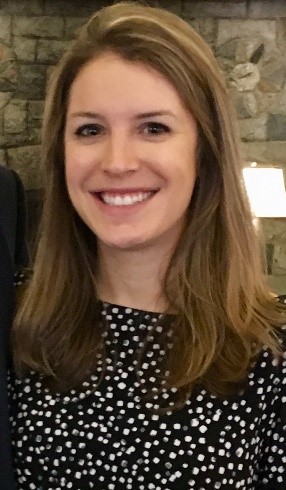How are data, math, and coding tools used to advance public health?
This program will guide students in middle and high school to answer this question. Over the course of two one-hour online sessions participants will learn how to gather data and analyze it using the free coding software “R”. We will utilize real-world data from the COVID-19 pandemic in Massachusetts.
No previous experience is required. Participants will need a computer and internet access.
Instructors
 Zach Baucom is a third-year PhD candidate in the Biostatistics program at BUSPH. His studies have been focused on understanding cognitive decline, specifically in developing diagnostic criteria, prevalence estimation, and brain region deterioration clustering for those with Chronic Traumatic Encephalopathy (CTE), a degenerative brain disease associated with those who have suffered from repeated head impacts. This research is extremely important for not only understanding the dangers of contact sports like football or hockey but also in determining how to make them safer. Zach’s methodology interests include machine learning and longitudinal data analysis. He looks forward to sharing insights into the field of Biostatistics.
Zach Baucom is a third-year PhD candidate in the Biostatistics program at BUSPH. His studies have been focused on understanding cognitive decline, specifically in developing diagnostic criteria, prevalence estimation, and brain region deterioration clustering for those with Chronic Traumatic Encephalopathy (CTE), a degenerative brain disease associated with those who have suffered from repeated head impacts. This research is extremely important for not only understanding the dangers of contact sports like football or hockey but also in determining how to make them safer. Zach’s methodology interests include machine learning and longitudinal data analysis. He looks forward to sharing insights into the field of Biostatistics.
 Anastasia Gurinovich is currently an investigator at Novartis Institute for Biomedical Research working on using human genetics data to facilitate new medicine discovery. Previously, she was at BU first as a PhD student in the Bioinformatics Department and later as a Postdoctoral Associate in Biostatistics. Anastasia has focused on the development of computational methods and data analysis of human genetics data to better understand aging and longevity. Specifically, she studied extremely long-lived, healthy individuals, or centenarians, to understand their unique genetic composition which helps them reduce number of old-age associated diseases and stay healthy until the end of their very long lives. The motivation for this is to help all of us to age as healthy and as happy as possible.
Anastasia Gurinovich is currently an investigator at Novartis Institute for Biomedical Research working on using human genetics data to facilitate new medicine discovery. Previously, she was at BU first as a PhD student in the Bioinformatics Department and later as a Postdoctoral Associate in Biostatistics. Anastasia has focused on the development of computational methods and data analysis of human genetics data to better understand aging and longevity. Specifically, she studied extremely long-lived, healthy individuals, or centenarians, to understand their unique genetic composition which helps them reduce number of old-age associated diseases and stay healthy until the end of their very long lives. The motivation for this is to help all of us to age as healthy and as happy as possible.
 Adrienne O’Donnell is a third year PhD candidate in the Department of Biostatistics at BUSPH. She is a research assistant in the Framingham Heart Study Neurology Group, where she analyzes data from this long-term observational cohort study. Her applied research work focuses on determining risk factors for cognitive decline and dementia. Adrienne’s methodology interests are in causal inference, with a focus on effectively analyzing electronic health record data and handling time-varying confounding. She enjoys teaching others about public health and biostatistics.
Adrienne O’Donnell is a third year PhD candidate in the Department of Biostatistics at BUSPH. She is a research assistant in the Framingham Heart Study Neurology Group, where she analyzes data from this long-term observational cohort study. Her applied research work focuses on determining risk factors for cognitive decline and dementia. Adrienne’s methodology interests are in causal inference, with a focus on effectively analyzing electronic health record data and handling time-varying confounding. She enjoys teaching others about public health and biostatistics.

